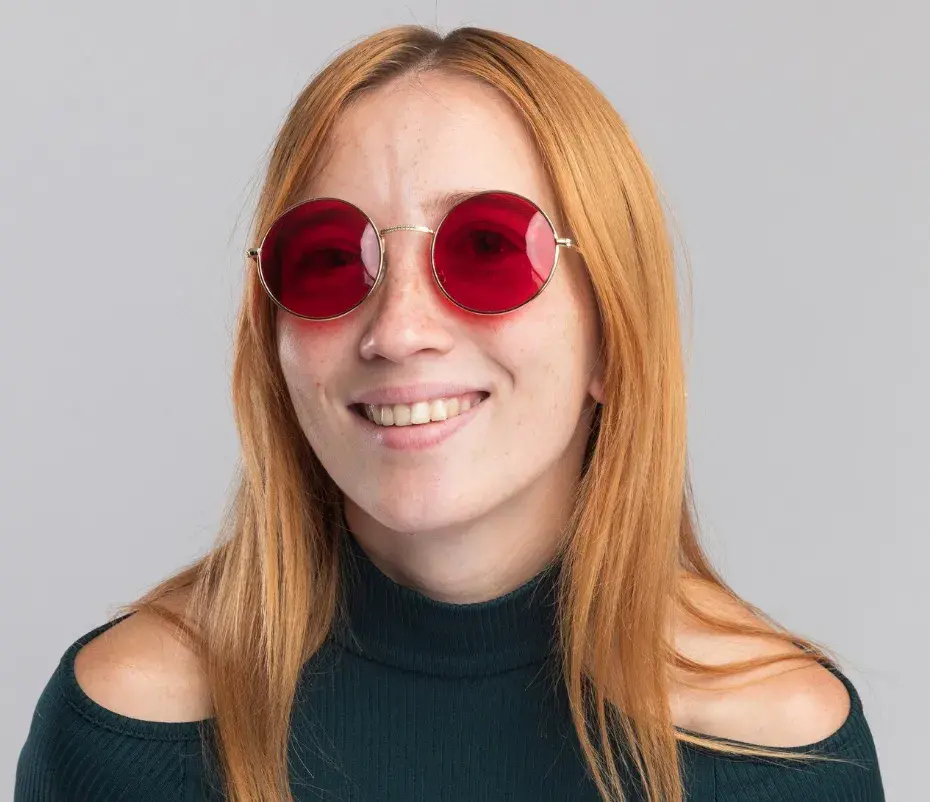How to Get a Visa Sponsorship in Rotterdam, Netherlands: The Complete Process Uncovered
Navigating international travel requirements can feel overwhelming, especially for Nigerian citizens planning short-term stays abroad.
This guide simplifies the steps needed to secure legal authorization for visiting one of the Netherlands’ most dynamic cities. With its thriving business scene and cultural attractions, Rotterdam attracts many visitors who require official approval for entry.
Understanding the sponsorship process is key to avoiding delays or rejections. Applicants often face challenges like gathering proper documentation or meeting specific financial criteria. Professional support services can help streamline applications while ensuring compliance with Dutch immigration rules.
The journey begins with learning basic eligibility standards and required paperwork. Many Nigerian travelers benefit from tailored guidance that addresses common pitfalls, such as incomplete forms or unclear purpose statements. Clear communication with sponsors—whether individuals or organizations—forms the foundation of successful applications.
This resource breaks down each phase, from initial research to final submission. Readers will discover practical strategies for building strong cases that meet official expectations. Whether seeking business connections or cultural exchanges, proper preparation makes all the difference in achieving travel goals efficiently.
Introduction: Overview of Visa Sponsorship Requirements
Securing entry approval for short stays often hinges on clear financial proof or third-party guarantees. Dutch regulations require visitors to demonstrate access to €55 per person daily during their trip. If personal funds fall below this threshold, applicants must secure a sponsor residing in the Netherlands.
Nigerian travelers have two pathways: self-funding or sponsor-backed applications. The daily spending rule acts as a decisive factor—those meeting it independently avoid additional paperwork. Those needing support must provide legally binding commitments from approved entities.
Key documentation includes bank statements, sponsorship declarations, and proof of the sponsor’s residency status. Authorities scrutinize these documents to verify authenticity and compliance. Professional advisory services can streamline this process, particularly for first-time applicants unfamiliar with European immigration protocols.
Understanding these fundamentals helps travelers assess their position early. It prevents last-minute hurdles and ensures alignment with Dutch entry standards. Subsequent sections will explore eligibility details and practical steps for assembling a successful application package.
Understanding Visa Sponsorship in Rotterdam
Establishing a sponsorship arrangement creates a legal relationship between travelers and their Dutch contacts. This partnership requires sponsors to guarantee financial support throughout the visitor’s stay. Both parties must understand their roles to avoid complications with immigration authorities.
Dutch residents or registered businesses can act as guarantors. They must:
- Prove stable income exceeding national minimums
- Submit recent bank statements and employment contracts
- Complete official sponsorship declaration forms
The process demands thorough documentation from both sides. Applicants receive a signed sponsorship form from their guarantor, which becomes part of their application package. Authorities verify each document’s authenticity through cross-checks with Dutch registries.
Businesses providing support must show active registration and tax compliance. Personal sponsors need valid residency permits. This system protects public resources while enabling cultural and economic exchanges.
Proper preparation prevents delays. Many Nigerian applicants benefit from professional guidance when coordinating with overseas sponsors. Clear communication ensures all requirements align with current regulations.
Eligibility Criteria for a Visa Sponsorship
Meeting financial thresholds forms the cornerstone of successful entry applications for Nigerian travelers. Authorities evaluate both individual capacity and sponsor commitments to ensure compliance with Dutch regulations. This process requires precise calculations and verifiable evidence to meet strict standards.
Applicant Financial Requirements and Daily Spending
Travelers must demonstrate access to €55 per person spend per day throughout their stay. This amount multiplies based on trip duration and group size—a 10-day visit for two requires €1,100. Acceptable proof includes:
- Three months of salary statements showing consistent income
- Travelers’ cheques covering the total calculated amount
- Employment contracts with clear compensation details
Necessary Documentation and Proof of Income
Different employment statuses demand specific paperwork. Salaried workers provide recent pay slips, while self-employed applicants submit tax returns and business licenses. Retirees need pension statements or investment portfolios showing regular disbursements.
All documents must be translated into English or Dutch by certified professionals. Immigration officers cross-check submissions with issuing institutions to confirm authenticity. Missing or unclear records often lead to delays or rejections.
Navigating the Immigration Forms
Properly completing immigration documents requires precision to meet Dutch entry standards. The proof of sponsorship form acts as the backbone of applications, binding sponsors and visitors legally. Errors here often lead to processing delays or rejections.
First, determine if you need authorization to enter the Netherlands. Citizens from some countries enjoy visa-free access, while others must apply beforehand. Nigerian travelers typically require advance approval, making the sponsorship document essential.
This form demands accurate details about the guarantor’s income and the visitor’s itinerary. Sponsors must declare their ability to cover daily expenses and accommodation costs. Authorities cross-check every entry against Dutch registry databases for consistency.
Submission methods vary based on individual circumstances. Digital uploads work for some cases, while others require physical copies at consulates. Always use the original form provided by immigration services—modified templates cause instant rejections.
Follow these steps for smooth processing:
- Download current versions of required documents
- Triple-check numerical data like dates and financial figures
- Seek certified translations for non-English/NDutch materials
Attention to detail separates successful applications from problematic ones. Double-sign all pages and keep copies for personal records. Dutch officials prioritize clarity and completeness in every submission.
Employment and Employment Contracts: A Sponsor’s Perspective
A sponsor’s job security directly impacts their ability to support international visitors. Dutch authorities prioritize stable income sources when evaluating guarantors. This ensures visitors have reliable financial backing throughout their stay.
Verifying a Valid Employment Contract
Guarantors must provide an employment contract valid for at least 12 months from the application date. Recent salary slips and employer confirmations prove consistent earnings. These documents show the sponsor can cover visitor expenses without financial strain.
Three essential items strengthen applications:
- Photocopied contract showing job duration
- Employer-signed declaration of current status
- Three consecutive pay statements
Immigration officials often contact employers to confirm details. This protects against fraudulent claims while maintaining system integrity. Consistent income patterns matter more than occasional high earnings.
Businesses acting as guarantors face additional checks. They must show active registration and tax compliance. Proper documentation prevents delays and builds trust with review teams.
Sponsorship for Self-Employed Applicants
Entrepreneurs and freelancers face unique challenges when acting as guarantors for international visitors. Unlike salaried workers, their earnings fluctuate, requiring thorough documentation to prove financial stability. Dutch authorities demand extra verification steps to ensure these sponsors meet income thresholds consistently.
Required Business Registration and Income Proof
Self-employed guarantors must submit three critical documents:
- A current Chamber of Commerce business registration extract
- Latest finalized tax assessment from Dutch authorities
- Profit/loss statement showing net earnings
The business registration confirms legal operation status. One immigration officer noted, “Active enterprises with updated records demonstrate reliability better than outdated filings.” This document must be less than six months old to reflect current activities.
Tax assessments serve dual purposes. They validate annual earnings while confirming compliance with national regulations. Combined with profit statements, they paint a clear picture of financial health. Net profits must consistently exceed €1,700 monthly—the minimum for most sponsorship cases.
Applications succeed when these records align perfectly. Discrepancies between tax filings and profit reports raise red flags. Professional advisory services help organize paperwork, ensuring all details meet strict Dutch standards.
Sponsorship for Pensioners and Benefit Recipients
Retirees and those receiving government assistance can act as financial guarantors under specific conditions. Dutch regulations allow pensioners and benefit recipients to support visitors if they prove stable income streams lasting at least 12 months beyond the application date.
Income verification requires official pension statements or benefit confirmation letters. These documents must show monthly payment amounts and duration. A social service officer noted, “Consistent records from recognized institutions carry more weight than handwritten financial summaries.”
Government benefit recipients face additional checks. They must submit recent letters from Dutch authorities confirming ongoing eligibility. This ensures the sponsor’s income remains reliable throughout the visitor’s stay.
Key requirements include:
- Pension statements with issue dates within three months
- Social service documents specifying benefit types and end dates
- Bank records showing regular deposits matching claimed amounts
These measures protect both visitors and sponsors. Fixed income sources often simplify approval processes compared to variable earnings. Proper documentation bridges trust gaps while meeting strict financial thresholds.
Explaining the Proof of Sponsorship Form Process
Accurate documentation bridges trust between applicants and immigration authorities. The proof of sponsorship form acts as a binding agreement, detailing financial commitments and travel plans. Sponsors must complete this document meticulously to avoid common errors that delay processing.
How to Use the Proof of Sponsorship Form
Sponsors initiate the process by filling out the form with precise financial and personal details. They then send it alongside supporting documents like bank statements to the visitor. Submission methods differ based on visa requirements:
- Non-visa travelers: Upload digitally during application
- Visa-required applicants: Submit physical copies to consulates
Immigration control teams verify every entry against Dutch databases. Discrepancies between the form and registry data often lead to instant rejections.
Key Tips from the Dutch Immigration Authorities
A senior immigration officer advises: “Triple-check numerical data like income figures and travel dates. Even minor mismatches create unnecessary hurdles.” Follow these guidelines for smooth processing:
- Use only current versions downloaded from official portals
- Sign all pages with matching signatures
- Attach certified translations for non-Dutch documents
Electronic submissions now expedite 40% of cases, according to recent reports. However, some situations still require in-person verification at designated centers.
Arranging Sponsorship: Who Can Sponsor You?
Identifying a qualified guarantor requires understanding Dutch financial and legal benchmarks. Only residents meeting strict criteria can arrange sponsorship for visitors. Eligible sponsors include citizens, permanent residents, and valid permit holders with stable income above national minimums.
Couples or partners sharing sponsorship must both submit proof of income and residency. This creates joint responsibility for the visitor’s expenses. Immigration officers review relationships between sponsors and applicants, prioritizing closer connections like family ties.
Businesses registered in the Netherlands can also act as guarantors. They must provide:
- Active Chamber of Commerce registration
- Recent tax compliance certificates
- Financial statements showing stability
All sponsors must maintain legal status throughout the visitor’s stay plus three additional months. Temporary residents cannot support applicants unless their permits cover this extended period. Proper documentation bridges trust gaps during application reviews.
Nigerian travelers should verify potential sponsors’ credentials early. A migration consultant advises: “Cross-check employment contracts and residency permits before submitting joint applications with partners.” This proactive approach prevents delays caused by incomplete paperwork.
The Role of Accommodation in Visa Sponsorship and Short-Stay Requirements
Practical living arrangements form a critical pillar of successful entry applications. Dutch authorities assess housing plans to confirm visitors have secure, compliant lodging throughout their planned stay. Private residences often serve as ideal solutions, combining affordability with documented stability.
Hosts must provide:
- A signed letter confirming address and guest permissions
- Proof of homeownership or landlord approval
- Details about sleeping arrangements and shared spaces
One immigration advisor notes: “Clear housing evidence reduces application review time by 30% compared to vague descriptions.” This documentation shows officials that visitors won’t strain public resources during their short stay.
Local regulations require sponsors to maintain adequate space for guests without violating occupancy limits. A studio apartment hosting two travelers might raise concerns, while a three-bedroom home demonstrates capacity. Lease agreements should explicitly allow temporary visitors if the sponsor rents their residence.
Short-term lodging needs less paperwork than long-term housing but still requires attention to detail. Nigerian applicants benefit from including floor plans or photos when possible. These visuals help verify that accommodation meets basic comfort standards.
Properly organized housing proofs strengthen trust in the overall application. They complement financial guarantees by showing a complete support system for the visitor. Always cross-check documents with current municipal guidelines to avoid outdated requirements.
Comprehensive Guide to Additional Required Documents
Gathering the right paperwork forms the backbone of successful entry applications. Dutch authorities require clear proof of identity and financial stability from sponsors. This ensures visitors meet all legal standards during their stay.
Sponsors must provide a photocopy of their valid passport, national ID card, or residence permit. The citizen service number (BSN) must appear legibly on these copies. Officials reject blurred or cropped documents immediately during initial checks.
Residency permits require special attention. They must remain valid for at least three months beyond the visitor’s planned departure date. Temporary permits often fail this test, so sponsors should verify expiration dates before submitting.
Additional requirements vary by situation:
- Employed sponsors: Recent salary slips and employer confirmation letters
- Property owners: Land registry extracts showing asset value
- Insurance holders: Policy documents covering visitor liabilities
One immigration consultant advises: “Always prepare extra copies. Review teams sometimes request secondary proofs like utility bills or lease agreements.” Digital backups help applicants respond quickly to such requests.
Document quality matters as much as content. Use high-resolution scanners to capture security features on ID cards and permits. Poor reproductions delay processing, even if the original meets all criteria.
Nigerian applicants should work with sponsors to collect these additional documents early. Proactive preparation reduces last-minute stress and aligns submissions with Dutch verification protocols.
How to Meet Daily Spending Requirements in the Netherlands
Financial planning forms the cornerstone of compliant travel preparations. Dutch regulations mandate visitors demonstrate access to €55 per person spend daily throughout their stay. This rule applies regardless of accommodation type or travel purpose.
Travelers calculate total funds by multiplying the daily rate by their trip duration. A 10-day visit for two people requires €1,100. Acceptable proof includes recent bank statements, prepaid travel cards, or signed guarantor commitments.
Nigerian applicants often use a mix of personal savings and third-party support. Digital banking records gain approval faster than paper statements. One migration advisor notes: “Clear transaction histories showing consistent balances ease verification processes.”
Authorities recommend these strategies:
- Organize financial documents chronologically
- Highlight recurring income sources
- Convert local currency totals to euros using current rates
Proper planning prevents last-minute scrambles. Double-check calculations against official guidelines. Errors in daily per person spend estimates remain the top cause of delayed approvals.
For more information, explore the official visa website mentioned in this article:
You will be redirected to another website
FAQ
What financial proof is required for applicants seeking sponsorship?
Applicants must demonstrate sufficient funds to cover daily expenses during their stay. For short-term visits, sponsors or individuals must show €55 per day per person, along with proof of prepaid accommodation or a valid employment contract.
How does a sponsor verify an employment contract?
Employers in Rotterdam must provide a signed agreement detailing job terms, salary, and duration. The Dutch Tax Administration (Belastingdienst) may cross-check income details to confirm compliance with minimum wage laws.
Can self-employed individuals arrange sponsorship?
Yes. Freelancers or business owners must submit a KvK (Chamber of Commerce) registration and recent tax returns. Additional proof, like client contracts or bank statements, helps validate stable income for the planned stay.
What role does accommodation play in the application process?
A confirmed place to stay—such as a rental agreement or hotel booking—is mandatory. The Immigration and Naturalization Service (IND) reviews this to ensure applicants won’t rely on public funds during their visit.
Who qualifies as a sponsor for short-term visas?
Legal residents, employers, or registered partners in the Netherlands can act as sponsors. They must submit an original “proof of sponsorship” form, along with recent pay slips or a employment history statement from the UWV.
Are pension statements accepted as income proof?
Retirees can use pension slips or bank statements showing regular deposits. If relying on savings, a notarized letter from the bank confirming accessible funds meets the IND’s requirements.
How long does the sponsorship form remain valid?
The completed form expires after six months. Sponsors should submit it alongside recent income documents, such as the last three months’ pay stubs, to avoid delays in processing.
What happens if daily spending requirements aren’t met?
Applications may be rejected if funds fall below the €55-per-day threshold. Sponsors can supplement this by providing a guarantee letter or prepaid travel itinerary to cover additional costs.
Published on: 4 de July de 2025

Galena Garcia
Galena Garcia is the visionary behind Portal Santista. With a degree in Business Administration and a specialization in Marketing for the financial sector, Galena brings years of experience from the corporate world, where she developed a deep passion for helping both businesses and individuals thrive financially.
Driven by a desire to share her knowledge with a broader audience, she founded Portal Santista—an online space dedicated to providing useful, practical, and reliable information on finance, marketing, and business management.
Outside of her professional life, Galena is an animal lover, a devoted reader of romantic novels, and loves spending fun moments with her nieces and nephews. Her unique blend of technical expertise and genuine care for people is what makes Portal Santista such a special place.






